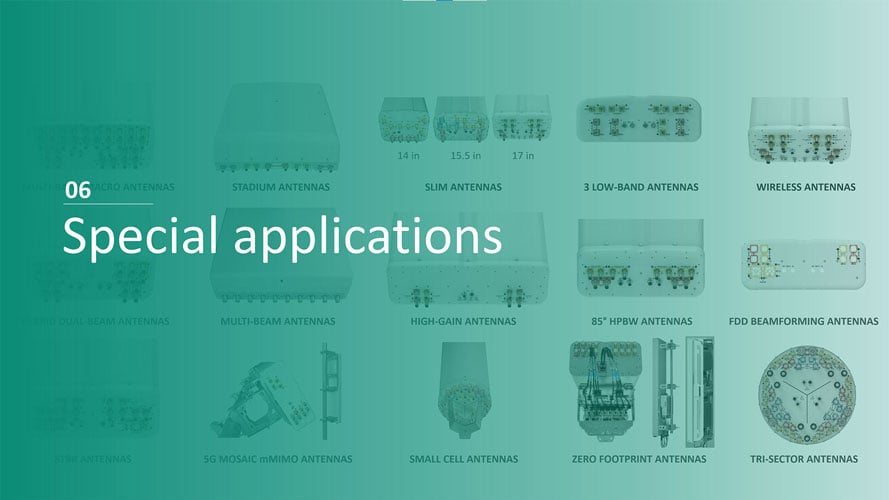Under the radome
Level up your knowledge of base station antennas
As mobile networks evolve, base station antennas grow more capable and complex. “Under the radome” is a series of video tutorials designed to get you up to speed on today’s high-capacity, future-ready antennas.
Register once to access all the video modules. Level up your knowledge of base station antennas.
Chapter 1: Antenna history (10 min)
Learn how mobile base station antenna technology evolved and the key components that enable today’s multi-band antennas to deliver amazing performance.
Chapter 2: Antenna theory (17 min)
Get up to speed on the common performance characteristics of base station antennas, especially antenna patterns. Learn what they are and how they’re measured.
Chapter 3: Antenna patterns (17 min)
Ready to take antenna patterns a step further? Learn the most common parameters and how technologies like MIMO can dramatically boost network capacity.
Chapter 4: Beamforming antennas (15 min)
Beamforming antennas have become increasingly common in 4G and 5G networks. Here, we explain how complex beamformers like passive 8T8R models work and why they’re important.
Chapter 5: Massive MIMO antennas (5 min)
Among beamformers, mMIMO antennas play a unique role in 5G networks. Learn how an mMIMO antenna differs from the passive 8T8R antenna you met earlier.
Chapter 6: Capacity-boosting antennas (9 min)
Nearly all cellular networks (and some venues) require increased capacity in certain areas. This video features specialized antennas used for macro layer sector splitting and small cell densification.
Chapter 7: Wind loading (10 min)
Antenna wind loading significantly impacts cell site structure. Learn more about it—what it is, how it’s defined and measured, and how antenna design engineers can minimize it.
Register today






